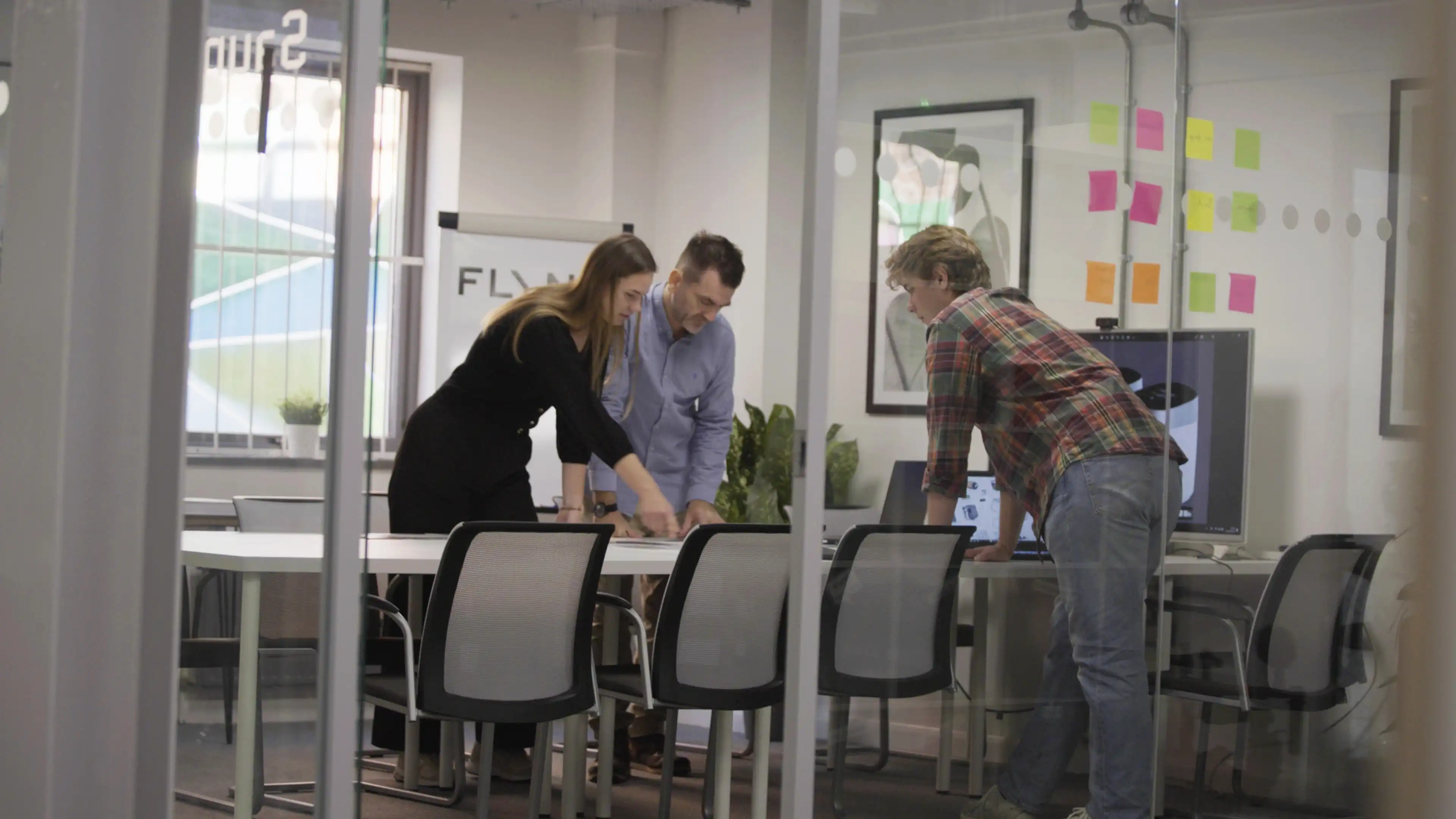Sustainable Product Design.
At FLYNN, we’re proud to play our part in this movement. As product designers, we hold the power to shape how products influence the planet.
Through sustainable product design, our mission is to create positive change for people, the planet, and the businesses we collaborate with, a balance of purpose and performance that defines everything we do.

80% of a product's environmental impact is tied to design decisions.
In a world facing rising global temperatures, plastic-choked oceans, and diminishing natural resources, sustainable design is essential. It calls for eco-friendly solutions designed to last, solutions that embrace circular systems and minimise harm while maximising impact.
True progress starts with understanding the principles of sustainable design, durability, systems thinking, and circularity. These are the foundations of responsible creation, guiding us toward products that do good, last longer, and help build a more sustainable future.
At FLYNN, we see sustainability as our responsibility, a foundation of our work. Sustainable design means creating products that minimise harm and maximise value for people, planet, and business alike. The design stage defines up to 80% of a product’s environmental impact, which is why our efforts are so focused here. By applying principles of sustainable product design, such as dematerialisation, low-impact materials, and circular thinking, we reduce waste and conserve resources from the start.

The Role of Life Cycle Assessment in Sustainable Design
Life Cycle Assessment (LCA) stands at the heart of sustainable design, providing a comprehensive framework for evaluating a product’s environmental impact from cradle to grave. By systematically analysing every stage of a product’s life cycle, from sourcing primary raw materials and manufacturing processes to distribution, use, and end-of-life disposal, LCA empowers companies to make informed decisions that drive sustainability.
Incorporating LCA into the design process allows businesses to pinpoint where the greatest environmental impacts occur, whether it’s excessive energy consumption during production, reliance on non-recyclable materials, or inefficiencies in the supply chain. This insight is invaluable for developing sustainable products that minimise waste, reduce carbon footprint, and support the transition to a circular economy. For example, choosing recycled materials, optimising packaging, and designing for disassembly can all be guided by LCA findings, resulting in products that are easier to recycle and have a lower overall environmental cost.
The Business Benefits of LCA
Beyond environmental benefits, LCA delivers significant advantages for businesses. By identifying opportunities to reduce energy usage and material waste, companies can lower production costs and improve operational efficiency. These sustainable practices not only enhance compliance with evolving regulations but also strengthen brand reputation and foster customer loyalty, key drivers of long-term value in today’s market. Research from the Capgemini Research Institute highlights that organisations embracing sustainable design principles and LCA achieve measurable economic benefits, including cost savings and a stronger competitive edge.
As climate change and resource scarcity present significant challenges for future generations, integrating Life Cycle Assessment into product design is essential. By leveraging LCA, businesses can create products that not only meet the demands of environmentally conscious consumers but also deliver long-term viability and positive impact for both society and the environment. At FLYNN, we believe that embracing LCA and sustainable design approaches is the key to unlocking innovation, reducing costs, and building a more sustainable future for all.
Designing Products as Systems
A truly sustainable product must work as a complete system. We consider the entire product lifecycle, how something is made, used, repaired, and ultimately recycled, ensuring every stage contributes to a smaller footprint and greater longevity. Products designed to be durable, repairable, and recyclable stay in circulation longer, saving both material and energy while extending their overall value.

The Value of Sustainable Product Design
The benefits of sustainable product design reach far beyond environmental impact. By designing with sustainability in mind, businesses can cut costs, improve efficiency, and strengthen compliance with evolving regulations. More importantly, purpose-led design builds stronger brands, those that act responsibly earn loyalty, attract conscious consumers, and future-proof their success in an increasingly sustainability-driven market.

Circular Design and the Opportunity Ahead
Circular design is central to what sustainable design truly means. At FLYNN, we design out waste, use lightweight materials to reduce energy use, and partner with green supply chains that prioritise ethical sourcing and efficient logistics. This creates a closed-loop system where nothing is wasted and every resource is valued.
Yet, many organisations have yet to fully embrace sustainable design, and that presents opportunity. Consumer demand is shifting fast; people are willing to invest more in products that reflect their values. At FLYNN, we help brands lead that change, turning sustainability into strategy and design into impact.




“we believe in pushing boundaries and disrupting markets with our skillset”
